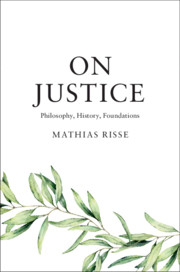Book contents
- On Justice
- On Justice
- Copyright page
- Contents
- Acknowledgments
- Introduction
- 1 Apologia for Justice
- Part I Political Philosophy
- 2 Political Philosophy as a Vocation: Seven Approaches
- 3 Political Philosophy as a Vocation: Seven Approaches, Continued
- 4 Global Thought: Political Philosophy in the World Society
- 5 Global Thought: World Society, Cultural Imperialism, White Ignorance
- 6 Half a Century after Malcolm X Came to Visit
- Part II Distributive Justice
- Part III The Grounds of Justice
- Bibliography
- Index
5 - Global Thought: World Society, Cultural Imperialism, White Ignorance
from Part I - Political Philosophy
Published online by Cambridge University Press: 18 September 2020
- On Justice
- On Justice
- Copyright page
- Contents
- Acknowledgments
- Introduction
- 1 Apologia for Justice
- Part I Political Philosophy
- 2 Political Philosophy as a Vocation: Seven Approaches
- 3 Political Philosophy as a Vocation: Seven Approaches, Continued
- 4 Global Thought: Political Philosophy in the World Society
- 5 Global Thought: World Society, Cultural Imperialism, White Ignorance
- 6 Half a Century after Malcolm X Came to Visit
- Part II Distributive Justice
- Part III The Grounds of Justice
- Bibliography
- Index
Summary
World society analysis explains change in terms of dissemination of ideas. However, many have insisted that Western ideas have played an outsized role and therefore current world society is illegitimate. To avoid this conclusion, we must show that world society analysis offers resources to find that role reasonably palatable. We can offer three responses: the Western tradition contains a plethora of approaches; the recent predominance of Western ideas is embedded into a human web that has unfolded for much longer; Western ideas are not alien elements infringing upon other traditions, but responses to earlier stages. The most important response is that ideas whose transmission involves coercion can be authentically appropriated. With this understanding of world society, we can formulate the conception of the political philosopher as a global discussant. However, some of the theoretical machinery to formulate a global public reason standpoint can only be developed in Part III.
Keywords
- Type
- Chapter
- Information
- On JusticePhilosophy, History, Foundations, pp. 86 - 110Publisher: Cambridge University PressPrint publication year: 2020

